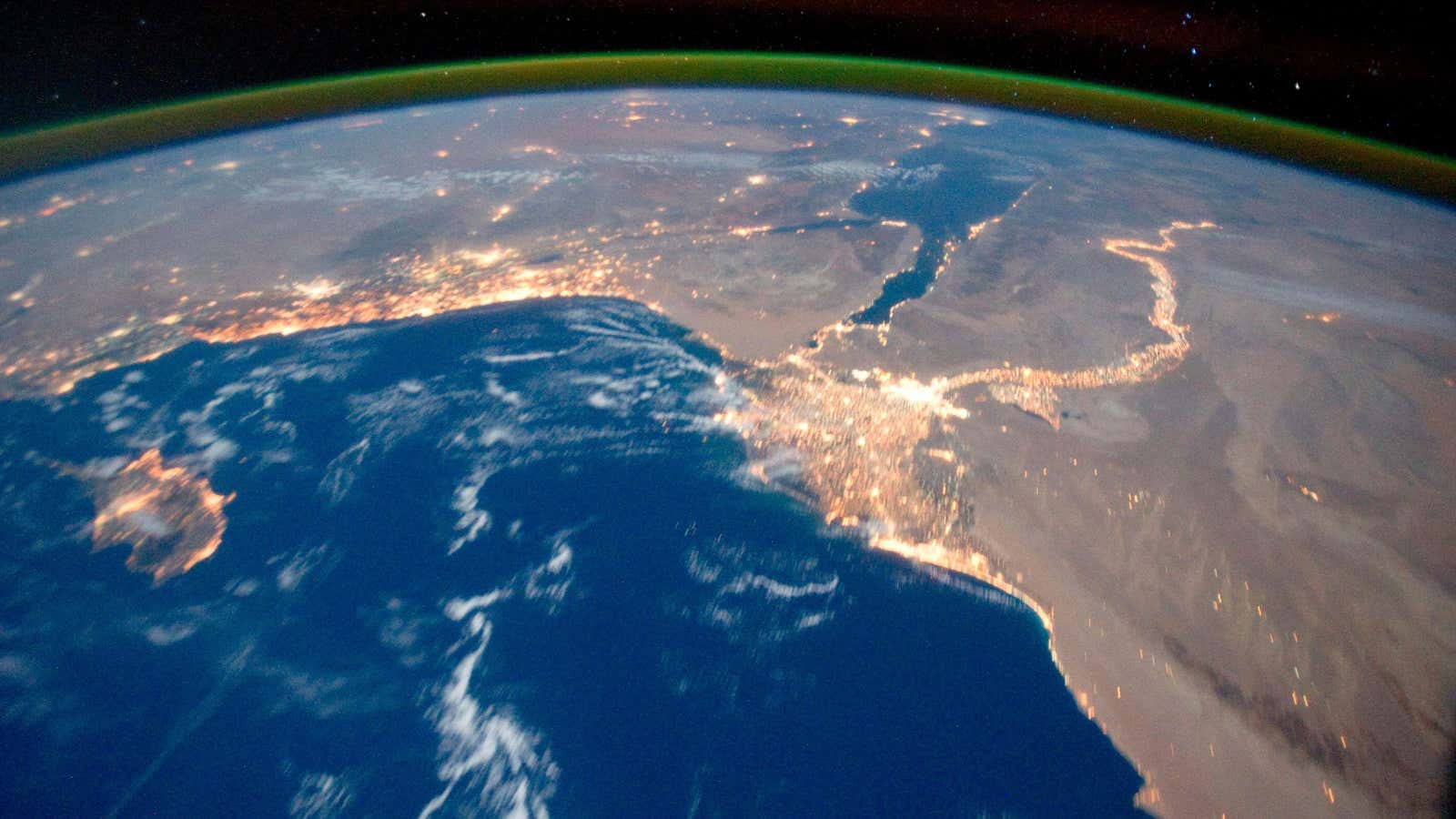African researchers interested in earth observation will now have a trove of free data to use as part of a new agreement aimed at using satellite technology to support sustainable development.
The African Union’s science and technology department recently inked a deal with the European Commission’s Copernicus program, which generates 12 terabytes of earth observation data daily. Considered the third largest data provider globally, the portal, through three sets of satellites, offers digital aerial photographs of sea topography, land temperature, vegetation changes, and weather patterns. As part of the deal, African scientists and institutions will also receive technical support from European research and space agencies, easing the process of cross-country and agency collaboration.
The recent deal builds on previous European and African cooperation when it comes to deploying satellites to especially help deal with the impacts of a changing climate. Africa is extremely vulnerable to the impact of climate change compared to other continents. Even while emitting the smallest global share of greenhouse gases, the continent is experiencing droughts, heatwaves, floods, and rising sea levels more frequently. As such, using space technology could help governments improve not only their analytical capacity but also leverage the new knowledge for planning purposes.
The AU’s ratification of the deal also shows members states are slowly awakening to the impact that space science and technology can have in addressing the myriad of challenges facing the continent. For years, the argument has been that Africa has too many problems to deal with ranging from poverty to food security, disease, and education. But slowly, the thinking around that has been shifting, especially as the cost of smaller satellites has declined and the technology has become accessible.
Many African nations lack the human expertise or capital to fund these satellite projects. But more countries are coming to understand that acquiring geospatial information from space has the potential to improve agriculture, guard tropical forests from deforestation, forestall climate change, improve disaster planning, and provide internet to rural communities.
To tap into these windows of opportunity, nations including Egypt, South Africa, Ethiopia, and Nigeria have all invested in their own space programs. In May, Kenya joined this cohort, partnering with Japan to deploy its own home-designed nanosatellite into space.
